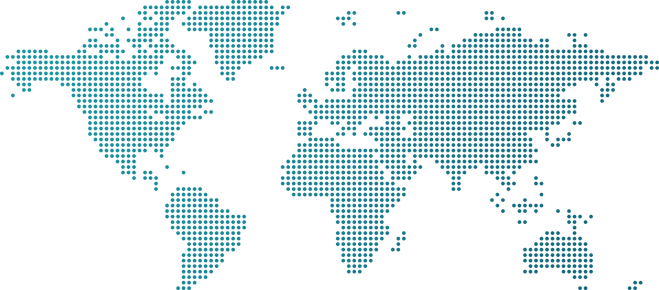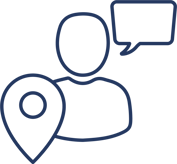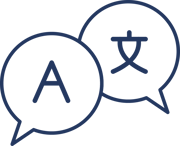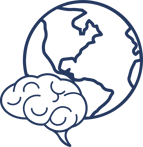Inclusive product development isn’t only the right thing to do, it makes business sense. Traditionally marginalized comm...
International UX Research: The Pathway to Global Scale
.png)
Posted by Meghan Cortner on Aug 1, 2023
So you want to conduct international UX research, but how do you actually do it? In today’s digitally and globally interconnected world, businesses are no longer confined to their local markets. And when you want to expand your reach internationally, UX research is a critical first step.
International research can help you gain insights about existing products, gather foundational insights for a new product or new market, and ultimately expand your customer base.
Breaking down barriers
International research can seem daunting, but it doesn’t have to be. You might have questions about the cost, logistics, or even the effectiveness of international research, and working with a third party expert can help answer those questions and create stakeholder buy-in.
Over the last 16 years, our team has conducted research projects in 25+ languages across six continents - we’re anxiously waiting for a project in Antarctica! We've seen firsthand how international UX research can not only inform product decisions, but also impact brands’ strategic decisions.
We’ve helped companies answer key questions through international UX research, including:
- What region-specific challenges might we face?
- How does our brand measure up against the local competition?
- Have users’ impressions of our brand changed over time?
- Will our digital product be relevant in our target international locations?
- What are the cultural needs of consumers in these markets?

Whether you’re new to international research, or need ideas on how to approach it, here are our top recommendations to make sure it’s a success. After all, we predicted that international market research would increase in the coming years, so let’s dive into how to tackle it.
Build in more time than you think you’ll need
International research usually requires juggling multiple time zones, languages, logistics, communication, and delays. Even more importantly, build in extra time for recruiting which will have added tasks and considerations - survey translation, communication delays, potential holidays - to ensure you find the right people for the study.
Create an effective moderator guide
Creating a moderator guide that is simple, yet detailed, can help bridge the gap in knowledge. We recommend simplifying complex and wordy questions into simpler terms to prevent bulky or awkward translations, and adding detailed probing notes to allow the local moderator to direct the questions accurately. Lastly, adding ‘do not ask’ questions can prevent probing into areas you already know enough about or that another team is focusing on.
Conduct foundational desk research
Before starting your study, consider doing some foundational desk research to get a feel of the market you are entering. Some simple missteps can be avoided, like displaying currency incorrectly ($34.95 vs. € 34,95 vs. ¥ 34,95). Other cultural considerations can also be uncovered early and prevent the need to pivot mid-study.
Learn more about cultural considerations when conducting UX research.

Recruit the participants you actually need
Within international markets, and even domestic markets, participants should come from diverse backgrounds. International markets are filled with not only your current customers, but also users you might not be expecting or even considering yet.
Local teams that are well versed in the market will not only support in linguistically translating the screener questions, but also translating and interpreting the concepts of who you’re looking for to find the right participants.
For example: If you need participants with a specific income level, the way income options are listed not only need to be linguistically translated but also will need to be conceptually translated, such as listing monthly salary options rather than yearly salary options to match the local market.
Leveraging a team well-versed in international research allows you not only to tap into potential customers and participants but also helps facilitate meaningful and culturally sensitive research interactions.
Utilize on-the-ground teams
When working internationally, having a trusted local team is essential. We find that trying to manage logistics, translation, and recruiting from overseas can be one of the biggest challenges of this process. Partnering with local companies that have long-standing relationships and experience enables your team to leverage a deep understanding of the local culture, language, and behaviors.
For example: A local language speaker can help ensure your moderator guide will be successful. And specialized in-country recruiting partners can make sure participant incentives will meet expectations, given their deep understanding of the local currency and customs.

Rely on local moderators and skilled interpreters
No matter what market or country your team is looking to explore, international research requires specialized skill sets and expertise to navigate the ever-evolving landscape. Utilizing local moderation can give your research depth and inform your team of any potentially missing cultural nuances and knowledge, sometimes even before the research begins.
Local moderators can offer different methods or phrasing, or suggest a concept change early on that will better match the market, saving your team time and providing better insights.
Translation is much more than simply changing the language - it requires understanding the local experience and colloquialisms people use in language every single day.
Skilled translators will be your guide, providing valuable insights that might be otherwise overlooked or notice a technically correct translation, and be able to suggest a different phrase to match the local dialect. By having a simultaneous translator, a local researcher on your team can ask additional probing questions to gain deeper insights.
Create protocols and systems for the next international research project
After completing an international study, streamline your lessons learned into systems and protocols to minimize future issues. Implementing systems with the local team will ensure a smooth start for the next project, as well as address any issues before the first day of sessions.
For example: Implement a round of feedback on the topic you are testing with a local language speaker to identify any translations that
aren’t quite right or identify any other oddities before sessions start.
Developing clear processes can not only help when conducting research for the next iteration of the project, but also when pitching new projects or expanding to other countries.

Conducting international research with a foundational and holistic approach can help your team make informed decisions, gain a deeper understanding of their international user base, foster innovation, and create a strong presence on a global scale. And, the information gained from one market can often be extrapolated and applied to similar products or initiatives within that region.
An expert team understands the unique challenges and opportunities present in each market, allowing for informed decision-making throughout the research. Our international UX research team consists of country-specific specialists who have lived in the country, speak the local language, or have professional skills to identify cultural nuances relevant to the research. Combined with skilled research operations professionals, your project will be in good hands from kick-off to completion.
***
People all over the world are getting online and going digital in higher numbers than ever - now is the time to conduct UX research so you can develop user-centric products that resonate with international audiences, positioning businesses for global success.
Ready to chat about your next international UX research project? Let's talk!
Meghan Cortner
Meghan Cortner is a UX Researcher at AnswerLab, where she collaborates with clients to help them better understand their users by incorporating international voices and perspectives. She has a wide breadth of expertise in social media, education, social issues, and logistics. Along with working closely with Fortune 500 clients to understand their users’ needs, she is passionate about mentoring and collaboration globally, and is the president of her Alumni Network for the University of Copenhagen.related insights
Get the insights newsletter
Unlock business growth with insights from our monthly newsletter. Join an exclusive community of UX, CX, and Product leaders who leverage actionable resources to create impactful brand experiences.